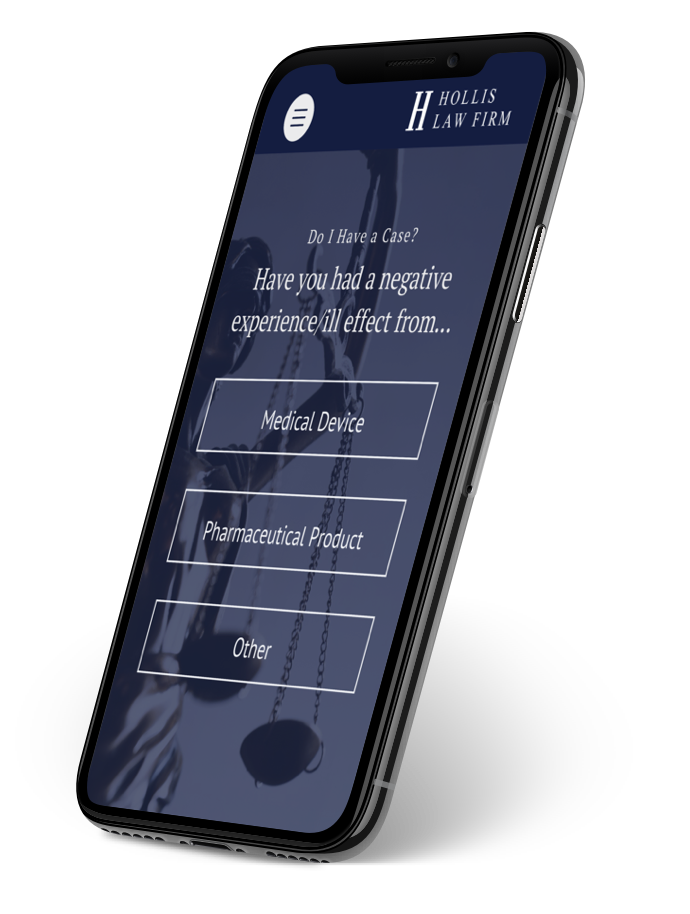Introduction
A common thread in all hernia mesh lawsuits against Bard is that their products contain non-medical grade, substandard, or adulterated polypropylene. Bard has been the hernia mesh industry juggernaut, dominating well over 50% of the market share for decades. The FDA didn’t look closely at medical devices until an amendment in 1976 which required innovative medical devices to undergo rigorous human studies and pre-market evaluation/approval by the FDA. However, Bard’s initial polypropylene hernia mesh known as Marlex entered the market prior to the 1976 amendment requiring human studies. Unfortunately, the FDA also created a loophole for future hernia mesh devices to get around pre-market approval (human studies) known as 510(k) clearance process. Under the heavily abused 510(k) clearance process, companies can skip human studies by claiming their device is substantially similar to a device that was on the market prior to the 1976 amendment, or is substantially similar to another device which obtained 510(k) clearance. T
History of the Case
The FDA pre-market approval process has now been in place for over 30 years, yet Bard has never once went through the pre-market approval process for any hernia mesh that contains polypropylene, regardless of its design or other components. The FDA has never required Bard to conduct human studies and has granted ALL Bard 510(k) clearances simply because the device contains polypropylene. This is absolutely shocking, considering the extensive amount of research and evidence in the last 20 years that conclusively proves polypropylene degrades in the human body! To make matters even worse, it has been established in public court documents that Bard began using non-medical grade polypropylene (plastic) over a decade ago! For a company like Bard to allow non-medical grade plastics to be implanted in humans is unthinkable, but the regulatory process which allowed this to happen is clearly ineffective, if not corrupt.
ePTFE Permanent Coating
Numerous Bard hernia meshes include expanded polytetrafluoroethylene (ePTFE) in their design, such as the Composix Kugel, Composix LP, Composix EX, Ventralex, and Ventrio hernia meshes. ePTFE is known to contract at an even faster rate than polypropylene! As a result, the mesh begins to curl and deform as the ePTFE shrinks post implantation. Additionally, ePTFE breaks down in the presence of bacteria. As ePTFE breaks down, it creates small nooks and crannies that harbor bacteria and protect the bacteria from the bodies defense system. The bacteria can then form what is known as a biofilm and cause long term and systemic infections. ePTFE also increases the permanent foreign body load, creating an even greater immune response to the hernia mesh implant. The increased immune response then causes the polypropylene to degrade at an even faster rate.
ST Resorbable Coating
Several Bard polypropylene hernia meshes incorporate the resorbable ST coating, including the Ventralex ST, Ventrio ST, Ventralight ST, and SepraMesh. The ST coating is intended to prevent dangerous adhesions from forming between internal organs and the Bard polypropylene mesh, yet the ST coating disappears five to seven days after implantation! After the ST coating disappears from the Bard mesh, adhesions can form to the bowel, resulting in debilitating pain, bowel obstructions, subsequent surgeries, and even bowel resections!
The ST coating of various Bard hernia meshes is derived from a product manufactured by Sanofi Genzyme called Seprafilm. Bard utilizes acidic polymers to adhere the ST coating to the underlying polypropylene mesh. These acidic polymers take many months to fully resorb in the body. As a result, wound healing is significantly delayed, and the risk of infection, seroma, fistula, and abscess formation are significantly increased.
Injuries Related to Product
If you’ve been diagnosed with one of the following injuries, you may have a claim in the Bard hernia mesh lawsuit.
- -Severe or chronic pain
- -Serious infection
- -Mesh shrinkage
- -Mesh migration
- -Organ perforation
- -Bowel obstruction
- -Bowel adhesion
- -Hernia recurrence
Additional Literature
Interested in learning more about the Bard hernia mesh lawsuit? Read the following additional case literature.
There are also approximately 7,600 Bard hernia mesh lawsuits pending in Rhode Island state court, the home state of Bard’s subsidiary Davol. Superior Court Presiding Justice Alice Gibney has been overseeing the Bard RI state court lawsuits since May 5, 2017. Bard hernia mesh lawsuits filed in RI state court could go to trial at some point in 2019.
Bard Hernia Meshes Included in Bard Hernia Mesh MDL 2846
The following Bard hernia meshes utilize polypropylene in their design:
- 3DMax
- 3DMax Light (Not included in Bard RI state court lawsuits)
- Composix
- Composix LP (Not included in Bard RI state court lawsuits)
- Marlex / Bard Mesh
- PerFix Plug
- PerFix Plug Light (Not included in Bard RI state court lawsuits)
- Sepramesh
- Ventralex
- Ventralex ST
- Ventralight ST (Not included in Bard RI state court lawsuits)
- Ventrio
- Ventrio ST
- Composix Kugel
- Kugel
- Modified Kugel
- Composix EX
Bard Hernia Meshes Excluded from Bard Hernia Mesh MDL 2846
The following Bard hernia meshes do not utilize polypropylene in their design and are therefore excluded from the Bard hernia mesh MDL:










